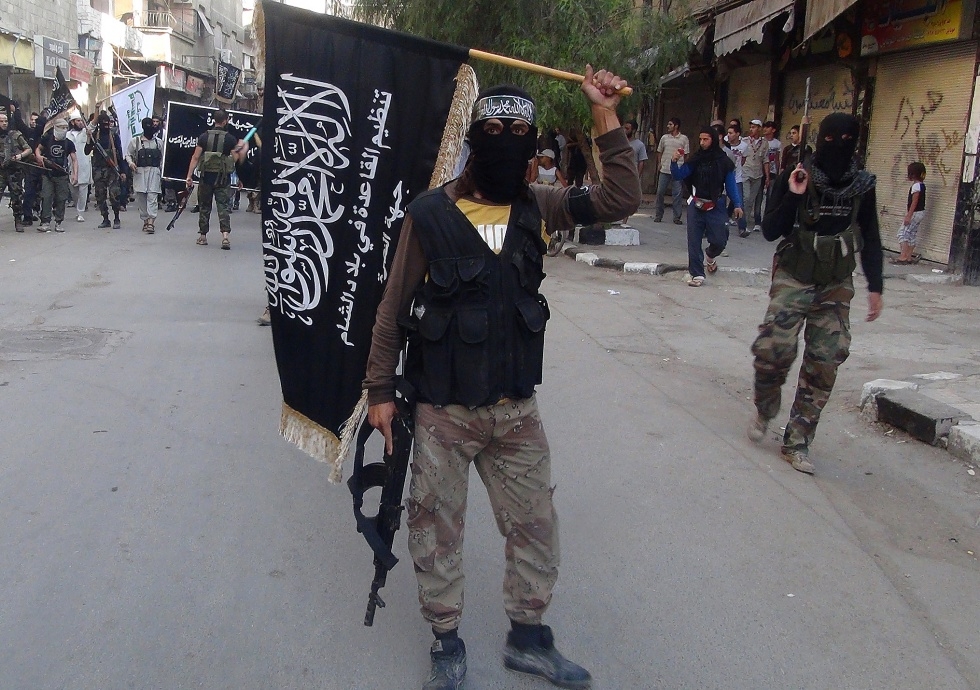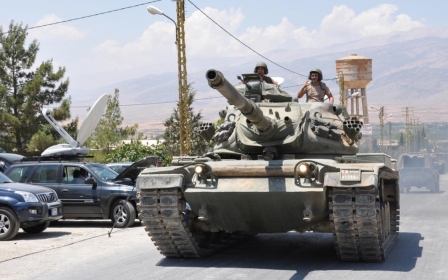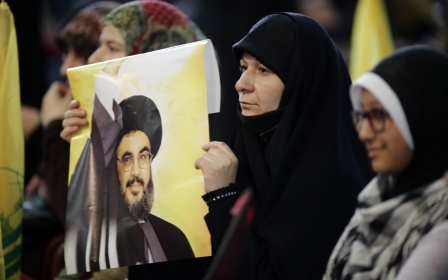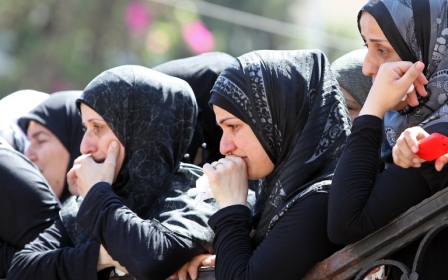Al-Nusra Front in Syria post video of kidnapped Lebanese police

The militant group Al-Nusra Front has posted a video showing kidnapped Lebanese security personnel calling on the Hezbollah movement to withdraw its fighters from Syria.
The nine men, who appear to be eight Lebanese policemen and a soldier, are among 24 security forces still in the hands of Al-Nusra after fighting erupted on the Syrian border earlier this month.
In the video posted Friday night on Islamist websites, the men are seated in front of a black flag with the logo of Al-Nusra, the Syrian affiliate of Al-Qaeda.
Although the men say they are speaking freely, they use the language of Al-Nusra and other Sunni Muslim extremist groups in referring to the Shiite movement Hezbollah, which means "Party of God," as the "Party of Satan."
They call on their family members to stage demonstrations and block roads in Lebanon to protest Hezbollah's involvement in Syria, where the Shiite group is fighting alongside the regime to put down a Sunni-dominated uprising.
One of them says the hostages have been warned they will be killed unless their families take action.
The men have been held hostage since an unprecedented outbreak of violence between jihadists and the Lebanese army in the Arsal region that began on August 2.
The fighting erupted after soldiers arrested a Syrian jihadist, prompting extremists to open fire on army positions and storm a police station.
Several days of fighting in the area, which lies on the Syrian border, killed 19 soldiers, 16 civilians and dozens of jihadists.
It ended with a truce negotiated by Lebanese Sunni clerics, but the jihadists withdrew from the area taking their hostages with them.
The clerics who negotiated the truce had been seeking the release of the hostages, but they announced in a statement on Friday that they were suspending their mediation efforts.
They said the decision was taken "to allow other parties that are more able to deal with this issue."
Jihadists killed in new push to take Syria air base
Elsewhere in Syrian, at least 14 militants were killed and 150 wounded in overnight clashes with Syrian troops defending an air base in Raqa province, a monitoring group said on Saturday.
The clashes came as the Islamic State group launched a new bid to capture the Tabqa base, the government's last bastion in the northern province, the rest of which is in the hands of the jihadists.
The Syrian Observatory for Human Rights said the attack began overnight when a suicide bomber blew himself up at the entrance to the base.
The two sides then exchanged rocket, artillery and heavy machine gun fire and the army deployed air strikes against the attacking jihadists, the Britain-based group said.
The air raids continued into the morning, with eight strikes against the town of Tabqa that killed 13 people, among them an additional 10 IS fighters.
Those deaths brought IS losses since it began its assault on Tabqa to at least 94, with more than 400 wounded, according to the Observatory.
IS has brought in reinforcements from other areas it controls in Syria, as well as neighbouring Iraq, the Observatory added.
The assault on Tabqa comes after IS seized the army's Brigade 93 and Division 17 posts in Raqa, killing dozens of soldiers, some whom it beheaded.
The army has airlifted reinforcements to the base and stepped up air strikes against IS positions across Raqa, using both precision rockets and barrel bombs.
Lebanon's As-Safir newspaper said Saturday that the governments of Turkey and Qatar were now involved in negotiations to free the security forces.
The fighting in Arsal was the most serious border incident since the Syrian conflict began in March 2011.
The war has regularly spilled over into Lebanon, and raised tensions between Sunnis who back the uprising and Shiites who mostly side with President Bashar al-Assad.
New MEE newsletter: Jerusalem Dispatch
Sign up to get the latest insights and analysis on Israel-Palestine, alongside Turkey Unpacked and other MEE newsletters
Middle East Eye delivers independent and unrivalled coverage and analysis of the Middle East, North Africa and beyond. To learn more about republishing this content and the associated fees, please fill out this form. More about MEE can be found here.




